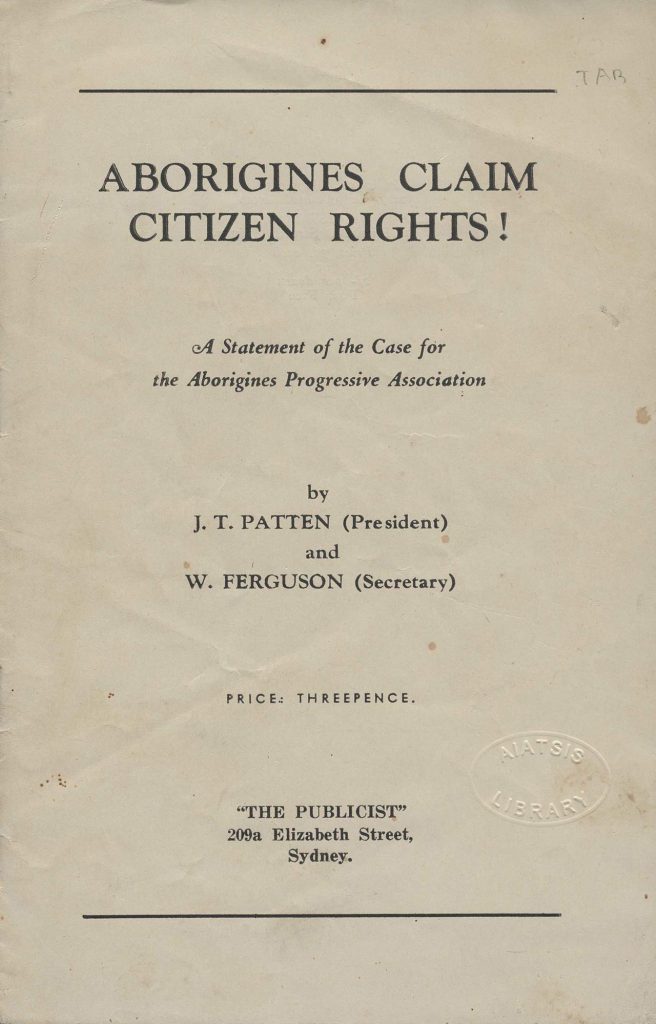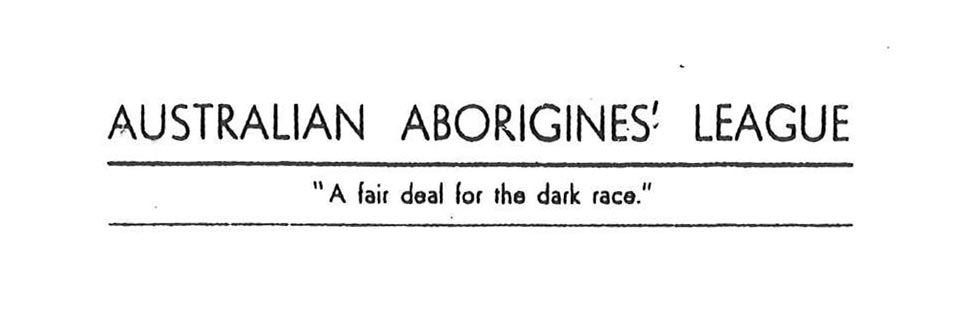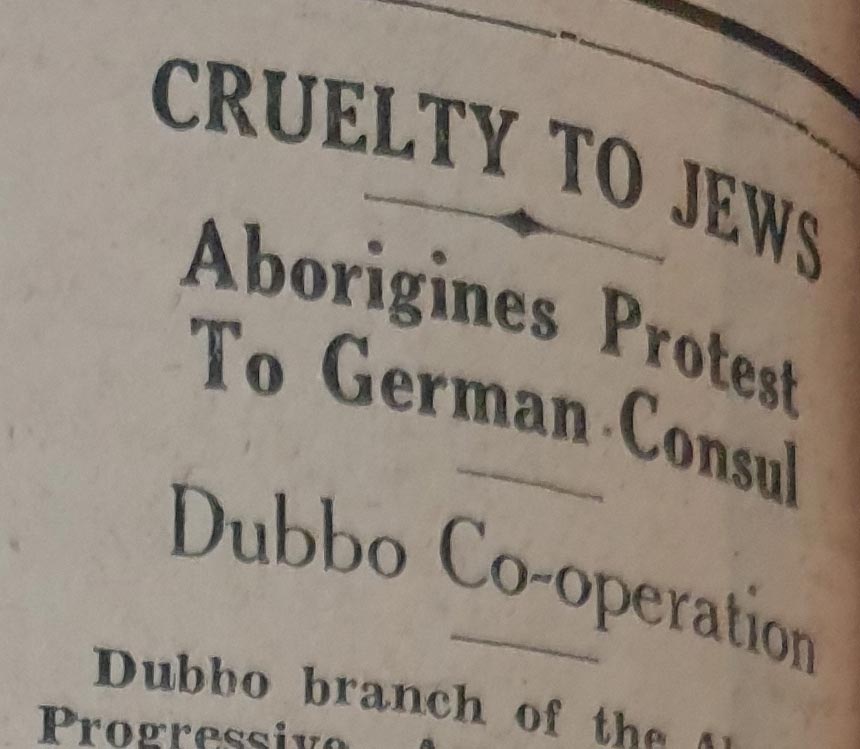Rights and Uplift
(1936-1938)
In calling for rights for Aboriginal people, Cooper and the Australian Aborigines’ League employed a range of discourses. In large part, the nature of their rights talk differed from the one Aboriginal people have relied upon in recent decades, which has emphasised indigenous rights, that is, the rights that only indigenous peoples can claim on the basis of being a nation’s first peoples or their descendants.
Citizenship Rights
The rights that Cooper, the League and their fellow Aboriginal campaigners mostly claimed were the same rights that other Australians enjoyed — what were often called ‘equal rights’ or ‘citizenship rights’ — rather than any other kind of rights. In doing this, they emphasised what they believed Aboriginal people had in common with non-Aboriginal people, such as being human and being Australian. But, at least in its formal statements of policy, such as its Constitution, the League was inclined to suggest that the rights of citizenship should not be granted to their people as a matter of course but depend instead on the capacity of their people to exercise those rights. In other words, the League often seemed to accept that the rights they were claiming for their people were not so much an entitlement as something they had to earn. Consequently, its spokespersons often spoke as though they agreed that the rights of citizenship could only be granted to all Aboriginal people once they had assimilated European or British culture and thereby acquired the prerequisites of so-called civilisation. Yet at times Cooper demanded that particular rights, such as the right to purchase alcohol, be granted to all Aboriginal people immediately, and at others they called for special rights in the form of what they called ‘uplift’.

Aboriginal Rights

While Cooper and the League laid claim to the rights of Australian citizens on the grounds that Aboriginal people shared a common nature with them, this was by no means the sum of the ways in which they claimed rights for their people. They often made arguments that focused on a different status that they saw their people as having. The most common source of difference they invoked rested on the fact that their people were Aboriginal in the sense of being Australia’s first people. For example, they would argue that Aboriginal people had a right to the best possible treatment because they were the descendants of the people who had first peopled Australia. This was especially the case when Cooper and League made claims in regard to land.
Minority Rights
In the late 1930s, in the context of the rise of Nazi Germany, Cooper and the League increasingly invoked the rights of minority people as a means of advancing their cause. For example, in December 1938 they protested against the German government’s persecution of Jews, primarily in order to draw attention to their own people’s plight. A petition they drew up stated: ‘Like the Jews, our people have suffered much cruelty, exploitation and misunderstanding as a minority at the hands of another race’.

